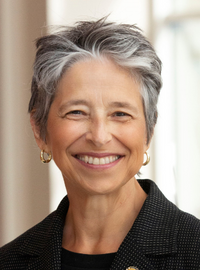Watch now!
The 1-year results from the PRECISE Trial were presented by Dr. Pamela Douglas in a Late Breaking Science session at the American Heart Association (AHA) annual congress in Chicago on November 6th. This global, prospective, randomized trial examined a Precision Pathway versus a Traditional Testing pathway for patients with stable chest pain. The Precision Pathway included risk stratification using the PROMISE risk score, deferred testing in low-risk patients and CCTA and selective FFRct in elevated risk patients. The Traditional Testing pathway evaluated patients through functional testing or invasive coronary angiography. This panel of leading experts will discuss the trial results, how the findings relate to the 2021 AHA/ACC Chest Pain Guidelines, and what the data tell us about different strategies for the evaluation and diagnosis of coronary artery disease.
Panel:
Pamela S. Douglas, MD MACC, FAHA |
Maros Ferencik, MD, PhD |
Gregg W. Stone, MD |
Learn from our expert panel about:
- What the PRECISE Trial tells us about clinical outcomes and test utility in patients following a Precision pathway centered on CTA and FFRct versus Traditional Testing
- How the findings of the PRECISE Trial relate to the recommendations of the 2021 AHA/ACC Chest Pain Guidelines
- Whether diagnostic testing can be safely deferred in low-risk patients
- How a Precision Pathway impacts the population of patients referred to the cath lab for invasive evaluation
Who should watch:
- General Cardiologists
- Imaging Specialists
- Interventional Cardiologists
- Cardiac Surgeons
- Chiefs/Directors of Cardiology, Cardiac Surgery and Interventional Cardiology
- Cardiology and Health System Administrators
- Cardiovascular Service Line Directors


